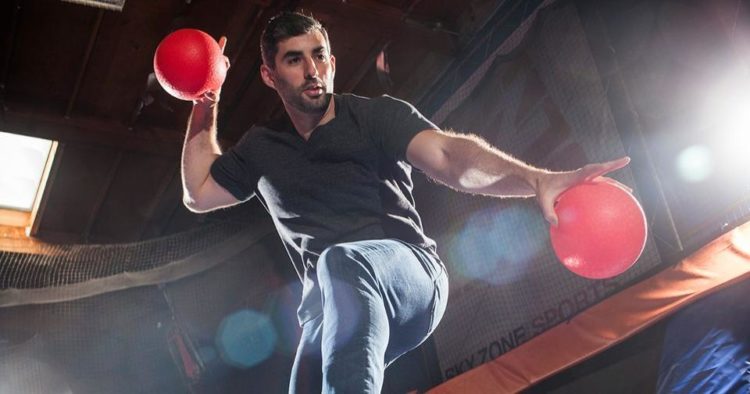When Sky Zone CEO Jeff Platt, BSBA’06, pitched his idea for an indoor trampoline park during his Intro to Entrepreneurship class at Olin, he couldn’t imagine the growth and success he would experience in the decade ahead.

Free Style Jump at Sky Zone (from website)
Sky Zone has grown from its original locations in St. Louis and Las Vegas to 176 franchised parks in six countries. “Twenty-five million people will visit this year, generating more than $300 million in sales. Last year, Sky Zone’s corporate revenues were $50 million, with a 20% profit margin,” according to an article on the Forbes website.
 Platt tells Forbes that he doesn’t plan to sell his fitness/entertainment venture any time soon, “We created a billion-dollar industry from scratch,” he says. “There’s a lot left to accomplish.”
Platt tells Forbes that he doesn’t plan to sell his fitness/entertainment venture any time soon, “We created a billion-dollar industry from scratch,” he says. “There’s a lot left to accomplish.”
Link to article on Forbes.
Link to related blog post: Platt shares business tips with CNBC.
Photo: Jeff Platt, CEO of Sky Zone, jumps at a company outlet in Gardena, CA. (Photo by Robert Gallagher for Forbes)




